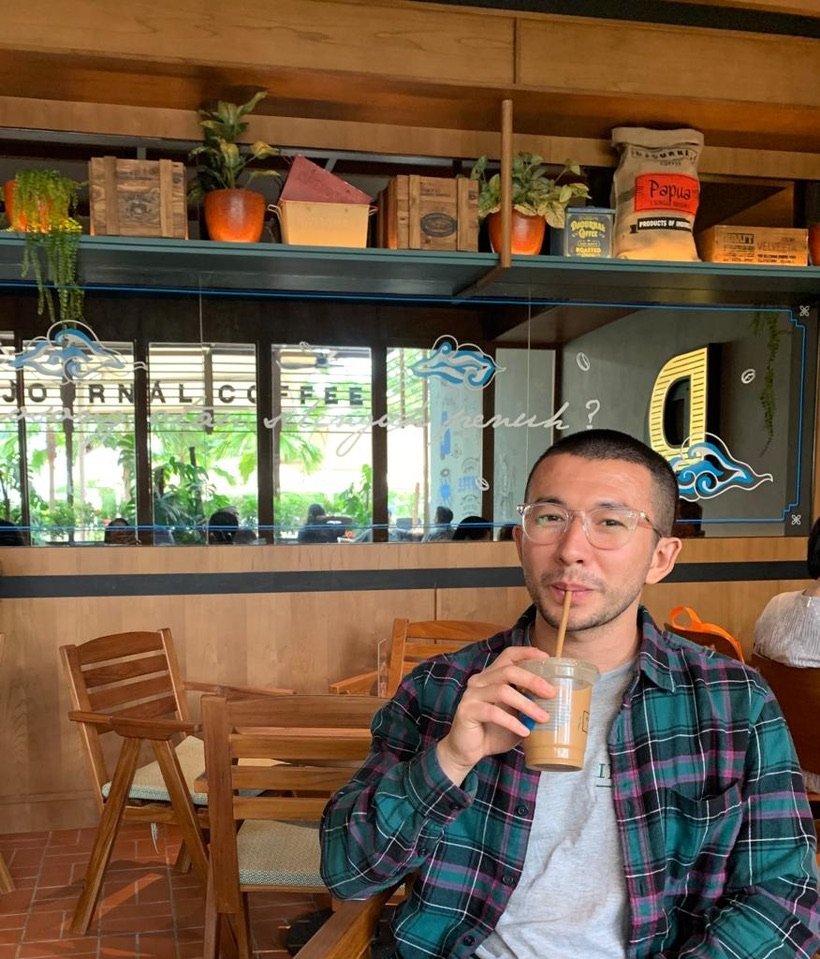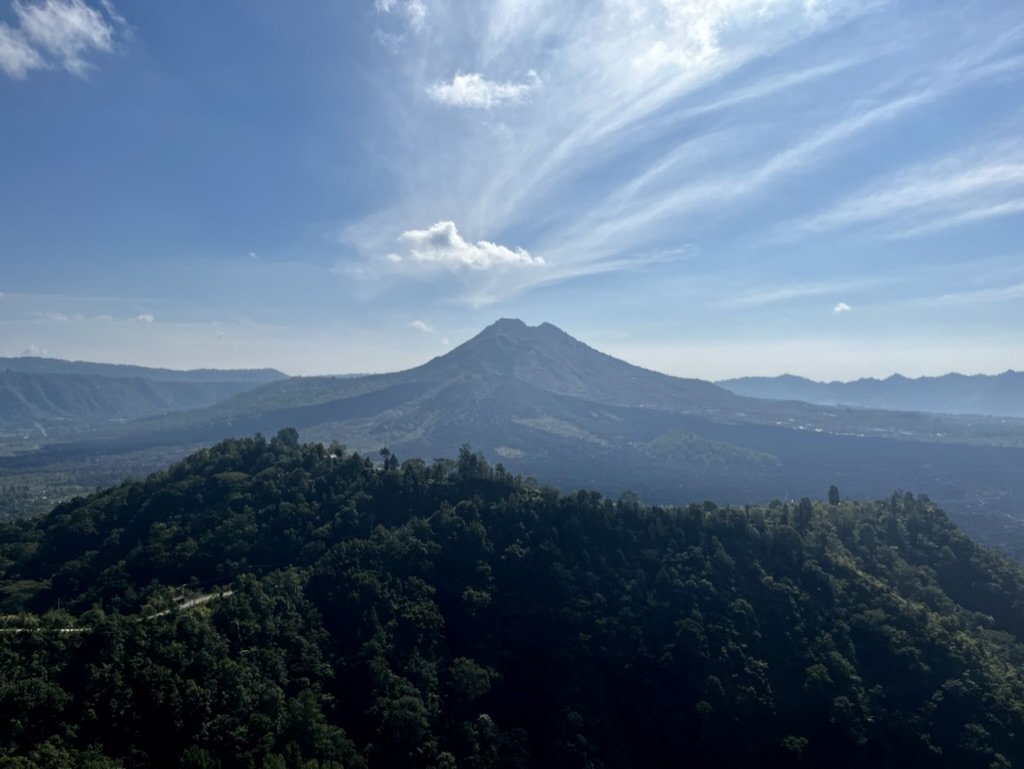From Time to Thyme
On Thursday, I blew my knee out. It was a non-contact injury. I probably tore a ligament in my right leg (I’ll know more when I see a specialist tomorrow). When I have experienced serious injuries in the past, they have broadly fallen into the following two categories:
I did this to myself
Someone or something else did this to me
In both cases, I experience bouts of regret and resentment in the aftermath. But this injury was the first that I have experienced that could best be described as a freak accident. Nobody and nothing is at fault. It’s like being struck by lighting. I did not feel any negative emotions. Rather, as I lay on the field horizontally watching my team play, I questioned what I would’ve done differently if I had known this was going to happen. As one does on their deathbed, I wondered how I would’ve lived my life differently. And in a sense, what happened was a partial form of death. At least I hope it is a temporary one. Physically, a part of me no longer exists at this point. I can’t walk very well and it will likely be a long time until I can engage in rigorous physical activity, let alone play in a contact sport. Psychologically, I am back where I have been when I have had previous serious injuries. Right now, I am no longer a soccer player. I am just Dakota. When this first happened to me in high school and I knew my chances of going professional were over, I cried. I cried and cried, and cried.
Now it’s become more of an academic exercise. Perhaps, I’ve let go so quickly this time that it has allowed those morbid thoughts to bubble to the surface with such ease. What would I have done differently with the time I had before the lightning struck? Would I still have stayed in the night before to go to bed at a reasonable hour and accepted it? Or would I have done everything I could to make the most of the time I had left with my working knee? Put in another way, once we pass, one of the first questions we ask ourselves is some version of “What should I have done differently with the time I had?” And with that, we begin our approach to the main topic of today’s piece. Time.
Death and time are intimate partners. As time passes, we become one step closer to death. This is something we all inherently know to be true and yet at the same time, we deny it with opposing and equally convincing vigor. If you ask a given person if they truly think they will die, they won’t be able to answer it.
“Everybody has got to die, but I have always believed an exception would be made in my case.”
We can both conceptualize our death and not accept it at the same time. This type of contradiction allows us to move forward in our lives without being paralyzed by the truth. Time is a challenging topic to unpack because it contains both physical and philosophical components. In the material world, time is something that impacts us and something we use to shape our world. We age as time goes on and we measure time to organize our days into distinct periods and activities. Time also poses great existential questions to us. Do we all interpret and experience time the same way? For example, if we traverse a new path for the first time, the journey will feel much longer than when we take it again in the future, despite the actual duration of each trip being the same.
“The unpredictability of the initial leg of the trip may make it so that it is remembered as being overly long. Conversely, the return trip is remembered as being short because it is now more familiar and predictable.”
Without its physical manifestations, how can we know that time exists? If we existed in a void then our own deaths would be the only proof that time exists. The expiration date we all carry suggests a beginning and an end. And there we go again. Death. Always lurking around the corner as we walk down this path we call time.
We are obsessed with time. Its level of universality is a trait shared with very few other things. If you were to consider time as a natural resource, the next closest thing I can think of that is as universal and key to our existence is water. Although water does not captivate our attention in the same way time does, there may be a case for us to discuss it further…water is a precursor for biological life. That being said, every living creature that has consumed water has died. That is a one hundred percent kill rate! Perhaps we should be talking about water more. Bad jokes aside, the following was originally conceived in the spring of last year. When I rediscovered the core of this text, I traveled back in time to speak with my former self. I learned that he had a lot to say on this matter. To his pleasant surprise, I had unknowingly kept the torch alive by furthering my understanding of this topic. After a spirited debate (read: edits!), we’ve co-authored the following.
Spoiler alert: This piece will discuss Dark, Attack on Titan, and Slaughterhouse-Five.
A slave to the future. Burdened by the past. Mankind lives everywhere but the present.
In the show Dark, the characters are stuck in a bootstrap paradox. The bootstrap paradox is where something or someone travels back in time to create a chain of events that leads to that same something or someone traveling back in time from the future to continue the loop again. The something or someone exists but no longer has an origin. This is what the characters in Dark are obsessed with as they are caught in a bootstrap paradox. We start the story in 2019 and then travel between 1888, 1954, 1971, 1987, 2053, and other periods. As the characters traverse these various points in time to understand more about their world, it becomes evident that none of these moments are the starting point—where is the origin?
“The end is the beginning and the beginning is the end.”
Each character does not have the full picture. Only we do, as the audience.
“What we know is a drop. What we don’t know is an Ocean.”
Therefore, the audience with all of its knowledge pieced together from the perspectives and experiences of the various characters involved, begins to view the story from the vantage point of the puppet master. Time.
“Time is god.”
This elicits the age-old question as to whether or not we have free will. In this case, it is through the lens of time. If time is indeed circular, as portrayed in Dark, then do we control our actions or do they all ultimately serve outcomes that perpetuate themselves? Therefore, making time the ultimate arbiter. As the story progresses and eventually comes to a resolution, this is revealed to have been a misdirect. Time gets the free will conversation going but it doesn’t have the last word.
“People are peculiar creatures. All their actions are driven by desire, their character forged by pain. As much as they might try to suppress that pain, to repress desire, they cannot liberate themselves from eternal servitude to their feelings.”
The two main protagonists, Jonas and Martha, conclude the story by breaking the loop. This quashes the notion that time is the judge, jury, and executioner and returns agency to our characters. That being said, is it really their agency, or is it that of their innate desires that they themselves cannot fully comprehend or control?
“You and I are perfect for each other. Never believe anything else.”
These are the last words Jonas says to Martha as they both disappear into the ether. They are both created through the actions that perpetuate their time loop. With the loop broken, they are never born because they are not there to continue the chain of actions that leads to their respective births. This is clearly a contradiction because how can someone end their existence if their very existence is dependent on them creating themselves, to begin with? However, this is not the point. The point is that Jonas and Martha accept and acknowledge their innate desires. That is enough for them. While they may have never existed or that this is the end of their existence, in the briefest moment remaining, they choose to acknowledge that their desires, and therefore their love are real. That is what matters the most and what they choose to focus on. Whether time or their desires are the ultimate arbiter becomes a moot exercise under those circumstances. It’s left to the audience to ponder these questions since now Jonas and Martha won’t be asking them for us anymore.
Dark is an example of someone, or rather multiple someones, traveling through time to perpetuate a bootstrap paradox. Let’s talk about something, as opposed to someone, traveling through time to perpetuate a loop. Attack on Titan is a story that primarily deals with war, genocide, and our penchants for violence. However, it does utilize a mode of time travel to progress some of its story along.
If you’d like to read more about Attack on Titan, click here for a recent piece I wrote.
To simplify an otherwise complex time travel mechanism, let’s go with the following: The main character, Eren Jaeger, can send his memories back in time to others, including himself. By sending information about the future back in time, his future self influences all the events that lead to his current actions in the present. Eren is obsessed with self-determination and freedom, but he doesn’t have a clear idea of what he means by freedom aside from describing the feeling he desires as that of a bird taking flight on open skies. It’s this desire that drives him forward but as the story progresses, he realizes that he was never free. He was always subject to the desires that a future version of himself had planted in him. The future Eren had always been pushing his past self forward, and in some cases, it was his future self that had made him go through traumatizing and harrowing experiences because it was those pivot points that drove him to the extreme person he became in the future. He is no longer free as both his past and present are scripted by an inevitable future. While this beckons some of the same questions as Dark, there is a different thought experiment that is born here with real-world implications.
If you envision a specific future, perhaps one that you desire, and you act in a manner that leads to that future, you have effectively time-traveled. Of course, if one is solely focused on the future, then you run the risk of becoming a slave to it. A common trapping of our current productivity-obsessed society.
“With my desire to improve everything, I destroy the moment.”
Thus far, we have discussed several examples of how the future influences us. However, the same can be said about the past.
In the novel Slaughterhouse-Five, the author (Kurt Vonnegut Jr.) depicts post-traumatic stress disorder (PTSD) as a form of time travel. This is the reality of the main character, Billy Pilgrim. But the reality for the reader is that Billy is hallucinating and the way to reconcile with his disturbing past is to describe his PTSD as time travel. He claims to be unstuck from time. He sees the beginning and the end of his life but he claims to never actually die because time is now flowing through him.
To visualize this, consider swimming in a river. Our standard conception of time is like a river with a beginning and end. Linear. Now imagine that being unstuck in time is as if the river were to stop flowing. You could continually go back and forth. You can see and go to the beginning, the end, the middle, and any other point as you are no longer flowing through time. It is flowing through you.
In the case of Billy Pilgrim, he is fixated on his past. The events in Dresden that he witnessed during the Second World War never leave him. For him, the only way to pacify the impact of these horrors is to dispel the notion of the past, present, or future. The past therefore does not have a hold on him. It doesn’t exist. Events simply happen, which is best represented by the phrase “so it goes”, which is mentioned 106 times in the novel.
The clock on my microwave is off. It is about 50% faster than the average clock so I have witnessed it progressively break away from the other clocks in my apartment. I don’t refer to this clock for any other reason than to remind myself of the subjective nature of the systems that govern our everyday lives. Very punk and meta, I know. In a more practical application of everyday time travel, I have the clock on my work desk set to the standard time that others do so that I am not late for any meeting. The clock on my bedside is set a few minutes ahead of the standard time so that I can trick myself into waking up earlier and “giving” myself more time.
In this way we not only subjugate time to our will but we also commoditize it. Time shifts from a philosophical quandary to a tool with implications in the physical world.
We spend time. We are given time. We take time.
We are upset when someone wastes our time. We are elated when we are given more time.
Time can be a gift. It can be a punishment.
Time is valuable.
But how valuable is it?
While we have become very good at improving our ability to measure time, we are still unable to truly grasp its scale and value. For instance, I understand that if there are 24 hours in a day and 365 days in a year, then there are 8,760 hours in a year. Great. I can measure time but I can’t make sense of it.
“Putting Time in Perspective” by Tim Urban, written in 2013, does an excellent job of not only summarizing our misconceptions with the scale of time but also including illustrations to make it all the more digestible.
“Misao Okawa is 116. Her birthdate is closer to George Washington taking the presidency than to today. Again—that’s weird.”
“Cleopatra lived closer to today than to the building of the pyramids.”
Zooming in from the scale of time overall, to that of a single human lifespan, Urban wrote “The Tail End” in 2015, in which he also leverages handy graphics to discuss the various ways in which we can quantify the average life. From traditional measures such as days and years to the number of specific experiences he will have left such as winters and super bowls.
“It turns out that when I graduated from high school, I had already used up 93% of my in-person parent time. I’m now enjoying the last 5% of that time. We’re in the tail end.”
I think about that line a lot. We’re on the way to death from the moment we are born.
Vonnegut Jr. does a good job summarizing our inability to comprehend the scale of time and our lives as well with the following.
““Whenever my children complain about the planet to me, I say “Shut up, I just got here myself.””
Oma passed away last year (This is all Messed Up). Opa is gone. Many others as well. I live near my remaining living grandparents here in New York, which is great. For me, every remaining interaction we have is colored by how much time we may have left. I think about this with my brother who lives on the other side of the country. I think about it with my parents who live halfway around the world.
How many more summers? How many more Mets games? How many more shared meals?
Like the characters in Dark, Attack on Titan, and Slaughterhouse-Five, I find myself spending a lot of time, thinking about time (Hungry for Another Hour?).
Ignorance is bliss. It is against our nature to truly look time in the eye, accept our mortality, and keep on living. At the onset, such an approach appears too daunting and dangerous. Like looking at the sun, we may get blinded if we look too directly and closely.
However, there is a different thread we can hang on. Not one of despair with the reminder of our finite existence but that of conviction that it is our existence that we can control and define.
Like Jonas and Martha, at the end of it all, they decided that what was most important was not whether they existed or would continue to exist, but that their love was real and existed. And for them, that was enough.
Time well spent acknowledges our shortcomings in truly understanding “how much” time we really have left. It is true to one’s desires while being informed by the lessons of the past and driven by the hope of the future, without being mired in either.
Happiness only exists in the present. We only exist in the present.



